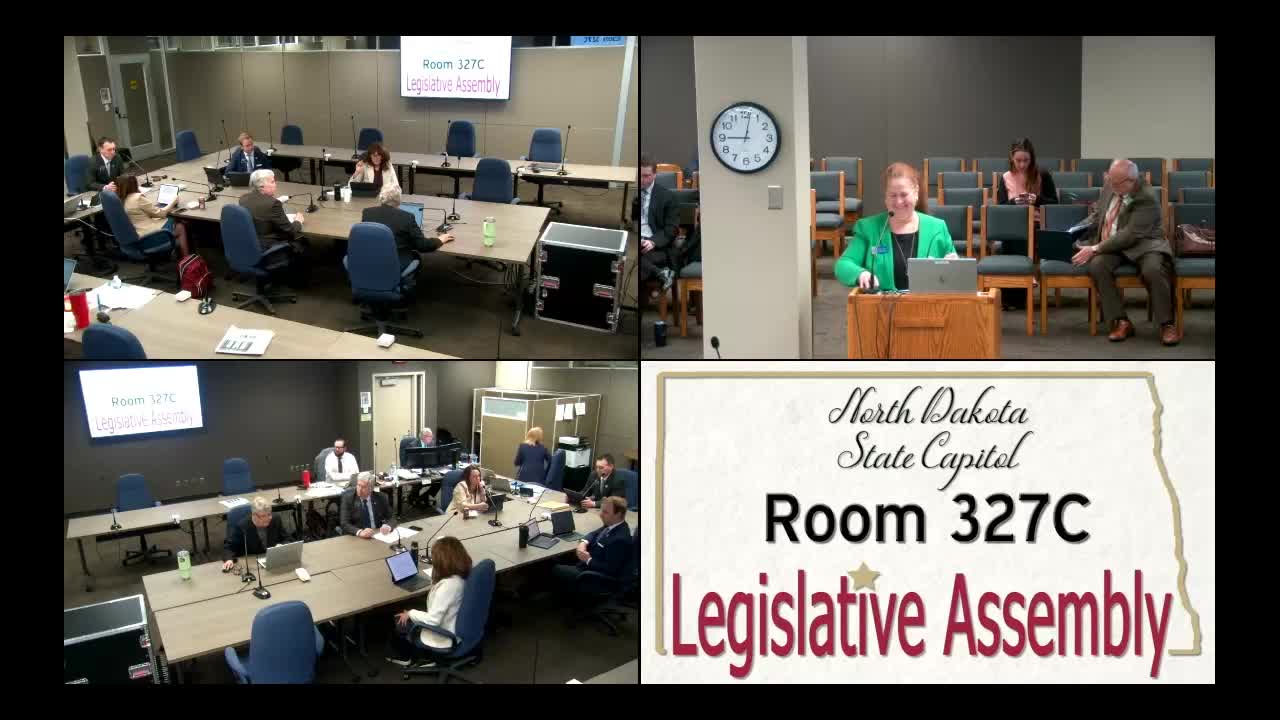Conference committee adopts streamlined PERS amendment, shifts cost-benefit review until after two-year pilot
Get AI-powered insights, summaries, and transcripts
Subscribe
Summary
A conference committee adopted an amendment that narrows earlier language on insurance mandates, preserves a two-year PERS pilot, removes the PERS boardas the bill sponsor after the pilot, and requires a cost-benefit analysis only if a rollout bill is introduced following the pilot.
A conference committee of House and Senate conferees adopted an amendment on an insurance-mandate bill that narrows prior language and reorders the statutory rollout process for any measure determined to be an insurance mandate.
Rebecca Frikey, executive director of the Public Employees Retirement System (PERS), told the committee she reviewed the amendment drafted by Legislative Council and described how the revised text differs from the Senate's earlier amendment. "At this stage in the game, when there's amendments, they have to go back to the original chamber in grossed version," Frikey said, explaining why the draft looks different from the Senate-edited version.
The amendment keeps a two-year PERS pilot for measures found to be insurance mandates but removes a standalone Section 1 and eliminates language that would have specifically repealed an insurance mandate. It also moves the procedural "kickoff" earlier in the statutory text to reflect how the process works in practice. Under the adopted language, the pilot remains the initial step; if, after the two-year pilot, a sponsor introduces a bill to roll the measure out to the commercial market, a cost-benefit analysis must be prepared before that bill can advance in committee.
The committee also carried forward a change removing the PERS board as the required party to submit a follow-up bill after the pilot. Frikey said Legislative Council made formatting adjustments and reordered provisions so the statute follows the actual sequence of events. "You'll see that, starting on page 5, row 17, this is really the kickoff of the process," she said. The draft likewise removes the insurance department as the required vendor to perform any cost-benefit analysis.
Senator Rohrs, who moved the amendment, said the recommendation before the committee was the final conference recommendation, not merely a motion for a further amendment. "Just that this is actually the final recommendation. It's not just a motion for an amendment," Rohrs said.
The committee approved the amendment by roll-call vote. The motion to adopt the "02/2003 version" was made by Senator Rohrs and seconded by Representative Greenberg. Diane, the committee clerk, recorded votes of yes from Chairman Maureen Worry; Representative Greenberg; Representative Bail; Senator Rohrs; Senator Hogan; and Senator Clemens. The amendment was adopted and the conferees agreed that Senator Rohrs and Representative Greenberg would carry the measure on their respective chamber floors.
The changes the committee approved narrow earlier language, re-sequence provisions so the statutory text begins with the practical kickoff of the process, preserve the two-year pilot period, require a cost-benefit analysis only if a rollout bill is introduced after the pilot, remove the PERS board as the bill sponsor at the post-pilot stage, and remove the insurance department as the designated vendor for the cost-benefit analysis. No dollar amounts, effective dates, or statute citations were specified during the discussion.
The committee adjourned after confirming carriers for the conference recommendation.
